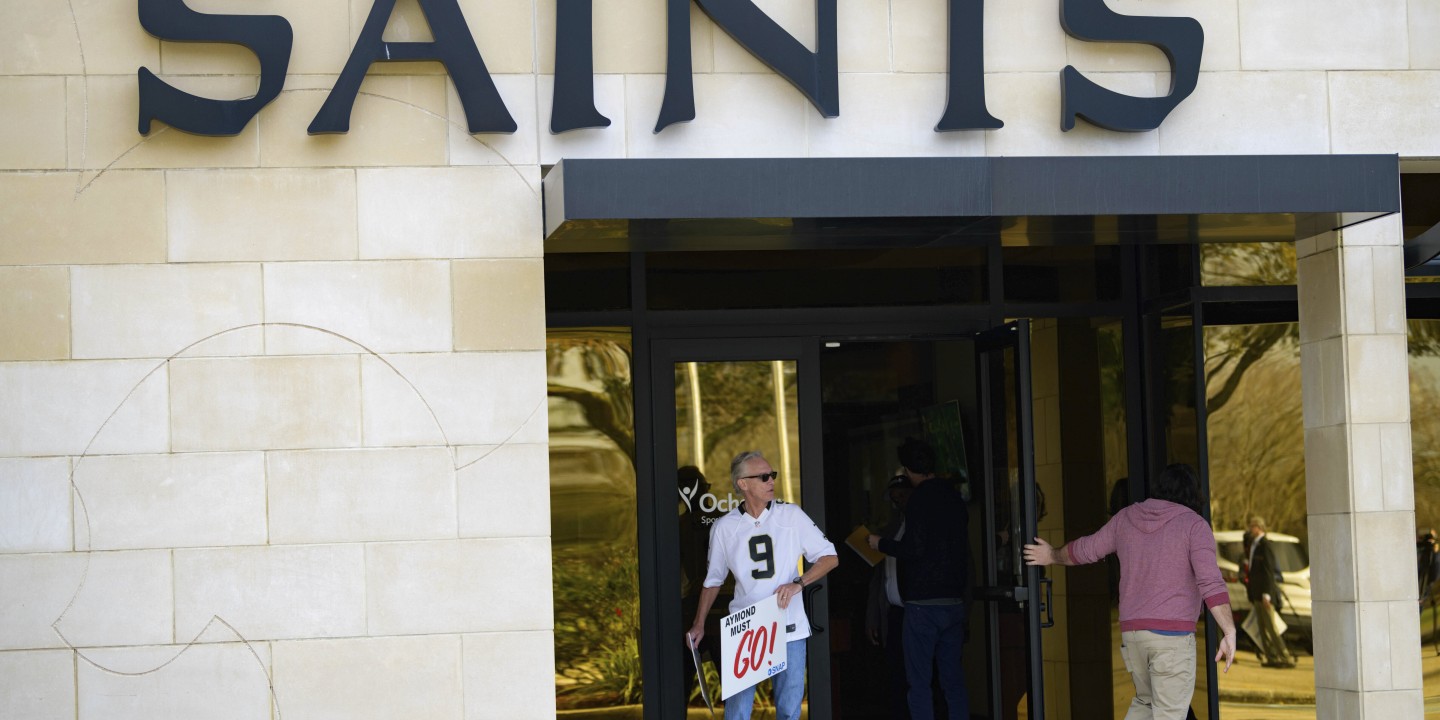New Orleans Saints fight to shield emails tied to Catholic sex abuse crisis

The New Orleans Saints are going to court to keep the public from seeing hundreds of emails that allegedly show team executives doing public relations damage control for the area’s Roman Catholic archdiocese to help it contain the fallout from a burgeoning sexual abuse crisis.
Attorneys for some two dozen men suing the church say in court filings that the 276 documents they obtained through discovery show that the NFL team, whose owner is Catholic, aided the Archdiocese of New Orleans in its “pattern and practice of concealing its crimes.”
Read our latest issue or browse back issues.
Saints attorneys, in court papers, disputed any suggestion that the team helped the church cover up crimes, calling such claims “outrageous.” They further said that the emails, exchanged in 2018 and 2019, were intended to be private and should not be “fodder for the public.” The archdiocese is also fighting the release of the emails.
The National Football League, which was advised of the matter by plaintiffs’ attorneys because the Saints’ emails used the team’s nfl.com domain, has not commented on the case. NFL policy says everyone who is a part of the league must refrain from “conduct detrimental to the integrity of and public confidence in” the NFL.
A court-appointed special master is expected to hear arguments in the coming weeks on whether the communications should remain confidential.
Attorneys for the men suing the church say “multiple” Saints personnel, including senior vice president of communications Greg Bensel, used their team email to advise church officials on “messaging” and how to soften the impact of the archdiocese’s release of a list of clergy members “credibly accused” of sexual abuse.
A Saints spokeswoman said team officials had no comment.
Attorneys for the Saints acknowledged in a court filing that the team assisted the archdiocese in its publishing of the credibly accused clergy list but said that was an act of disclosure—“the opposite of concealment.”
A handful of Saints emails that emerged last year in the clergy abuse litigation included an October 2018 exchange in which Bensel asked an archdiocese spokeswoman whether there might be “a benefit to saying we support a victims right to pursue a remedy through the courts.”
“I don’t think we want to say we ‘support’ victims going to the courts,” Sarah McDonald, the archdiocese’s communications director, replied, “but we certainly encourage them to come forward.”
The fight over the emails is part of a flurry of claims filed against the archdiocese over its employment of George F. Brignac, a longtime schoolteacher and deacon who was removed from the ministry in 1988 after a seven-year-old boy accused him of fondling him at a Christmas party. That accusation followed claims that Brignac abused several other boys, including one case that led to his acquittal in 1978 on three counts of indecent behavior with a juvenile.
Church officials permitted Brignac, 85, to act as a lay minister until local news accounts of his service in 2018 prompted his ouster and an apology from the archdiocese. The AP last year reported that Brignac, despite his supposed defrocking, also maintained access to schoolchildren and held leadership roles as recently as 2018 in the Knights of Columbus.
Following a new wave of publicity—in which Brignac told a reporter he had touched boys but never for “immoral purposes”—Brignac was indicted in December on a rape charge that could land him behind bars for the rest of his life. The prosecution came more than a year after a former altar boy told police that Brignac repeatedly raped him beginning in the late 1970s. Police said the abuse began when the boy was seven and continued until he was 11.
The archdiocese, meanwhile, has settled several lawsuits against Brignac and included the former deacon in the list of more than 50 names it released in late 2018 of “credibly accused” clergy. —Associated Press





